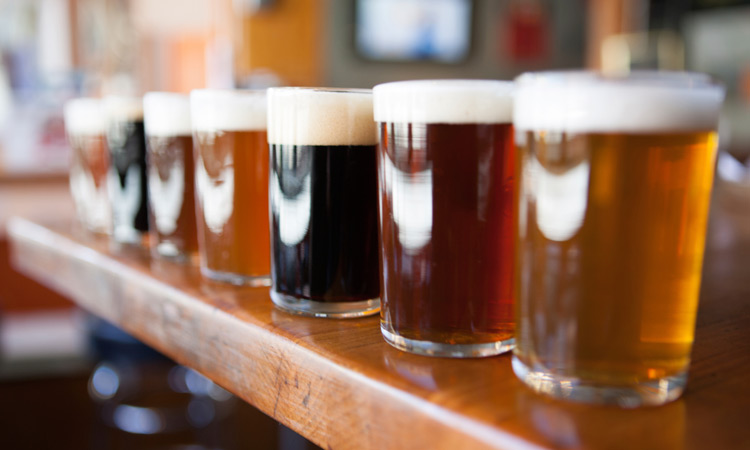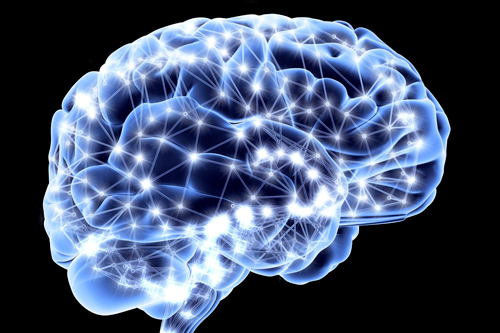 In college I worked as a cocktail waitress in a popular bar on campus. Night after night I delivered bottles of Budweiser and Rolling Rock to athletes, bookworms, and exchange students. My shift spanned the hours from 9 p.m. to closing, so I witnessed the crowd’s full transition from sobriety to complete intoxication.
In college I worked as a cocktail waitress in a popular bar on campus. Night after night I delivered bottles of Budweiser and Rolling Rock to athletes, bookworms, and exchange students. My shift spanned the hours from 9 p.m. to closing, so I witnessed the crowd’s full transition from sobriety to complete intoxication.
Watching students tumble out of the bar leaning on each other, occasionally running to hang their heads over the nearest trash can, it never occurred to me that drinking beer could actually have an upside. Recently, however, a study published in the Journal of Agricultural and Food Chemistry puts beer in a whole new light. It turns out that beer can actually help rewire your brain and fend off such devastating diseases as Alzheimer’s and Parkinson’s, all thanks to xanthohumol, a naturally derived flavonoid found in hops.
The Key to Protecting Brain Cells
It’s well known that oxidative damage plays a role in brain disease. Oxidative stress (an overabundance of oxygen molecules that impairs a cell’s ability to perform) occurs from an imbalance in the production of free radicals and the body’s ability to detoxify their damaging effects (for example, by neutralizing them through antioxidants). Free radicals are unstable oxygen molecules that need another electron to be complete. To stabilize itself the free radical bombards other cells, which leads to injury of the cell tissue and a buildup of oxidative stress.
Jianguo Fang, a researcher at Lanzhou University School of Chemistry, and his colleagues hypothesized that by protecting brain cells (neurons) from oxidative stress, they could stop or delay the progression of major diseases. They decided to design an experiment around xanthohumol due to its powerful healing properties, including its versatile activity as an anti-cancer, anti-oxidation, anti-viral, anti-inflammatory and heart-protective agent.
When you take in oxygen, it’s metabolized into reactive oxygen species (ROS)—messenger molecules that regulate signaling in cell activity. Studying rats, Fang’s team discovered that xanthohumol displays an ability to neutralize ROS which, in some cases, can mean neutralizing the signal for a cell’s death. This discovery led researchers to believe that xanthohumol can protect neuronal health, potentially sheltering neurons from the damage of disease. Fang notes that gaining the benefits of the flavonoid would only require a small amount of beer consumption (most beneficially from some dark brews): less than one cup delivers enough xanthohumol to make a difference.
Other Beer Benefits
While delaying brain disease is the most significant recommendation for xanthohumol, beer’s benefits don’t stop there. Consider these possible additional outcomes:
- Boost bone mineral density. A study in the Journal of the Science of Food and Agriculture reported beer as a meaningful source of dietary silicon, which plays a significant role in increasing bone mineral density.
- Block effects of testosterone. Scientists reported at an American Association for Cancer conference that xanthohumol successfully blocks the effects of testosterone, an action that might help prevent prostate cancer.
- Fight cavities and gum disease. Another study published in the Journal of the Science of Food and Agriculture discovered that hops’ antioxidant polyphenols might improve oral hygiene.
- Reduce rheumatoid arthritis (RA). In research published in Arthritis and Rheumatology, scientists presented the link between moderate beer consumption and a decreased risk of RA.
- Improve cognitive function. Behavioral Brain Research journal published a report from Oregon State University indicating that xanthohumol boosted cognitive function in young mice (although not in older animals).
The compiled research can make beer sound like a natural addition to any holistic health regimen, especially as a source of xanthohumol. But what if, like me, you don’t like the taste of beer? True, in a world of nutritional choices made to create a healthy lifestyle, I’ve eaten my share of tastes I don’t exactly love, but downing a daily cup of Bud or Rock might be where I draw the line. Luckily, xanthohumol presents in a range of compounds called Xanthones, which happen to be a primary compound in St. John’s Wort, an herb that can help lessen and alleviate mood swings, depression, and anxiety. Would St. John’s Wort deliver the same brain cell protection benefits as beer? That’s a question I’m hoping the scientists tackle next.
Click here to get inspired by Rose’s easy steps to positively change your mind


